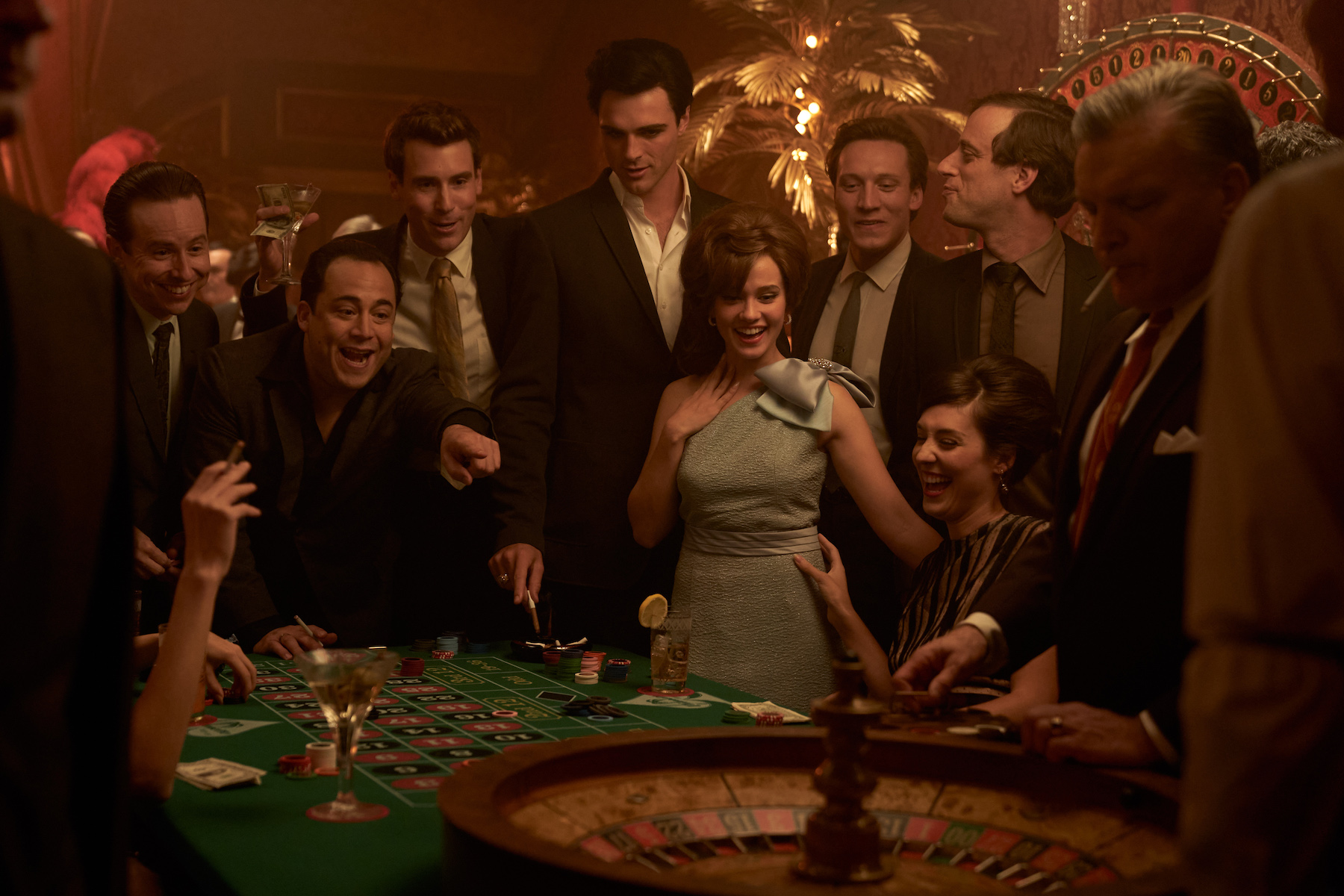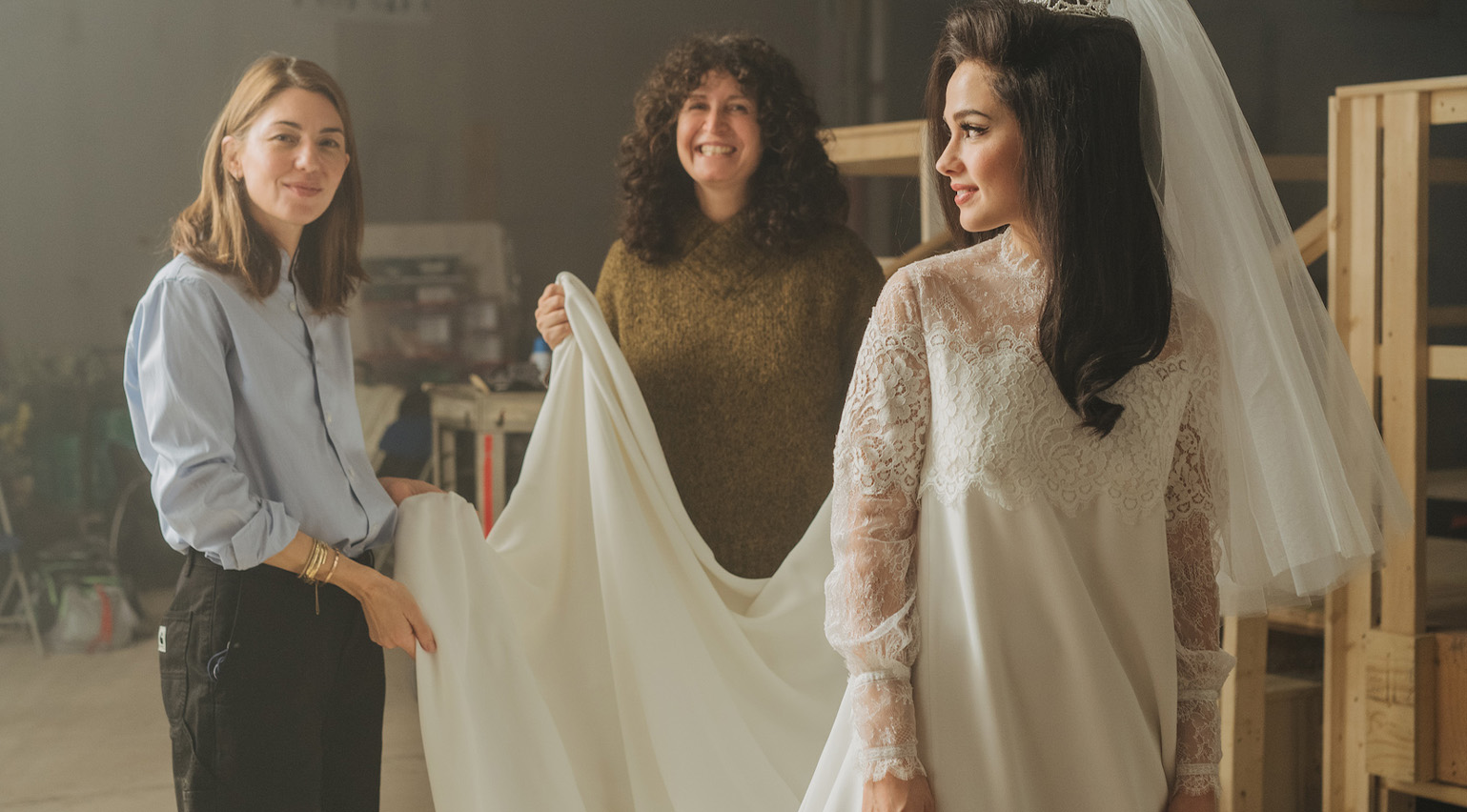
Sofia Coppola and Stacey Battat have been friends for two decades. They met when Battat, now Coppola’s go-to costume designer, was working at the Marc Jacobs store in New York City. ‘My neighbour at the Mercer Hotel was Sofia,’ she recalls over Zoom. ‘We would smoke cigarettes outside of our respective places of employment and talk to each other. She said to me, “When I make my next movie, I want you to do the costumes.”’ Three years later, Battat was working as a stylist with no experience in film, but true to her word, Coppola rang her up and asked her to do the wardrobe for Somewhere. ‘I just liked it so much,’ she says of the deep-end plunge in costume design. ‘I love fashion shoots too, but there’s this subtlety to developing a character.’
In the years since, Battat has been the skilful hand behind the costumes of five of the cult director’s movies – from the corseted frills of period psychosexual drama The Beguiled to the tacky noughties excess of The Bling Ring. She is also the creator of the plush, pastel-shaded sartorial universe of Coppola’s latest feature: Priscilla. Adapted from the memoir Elvis and Me, the film paints a sensitive portrait of Elvis and Priscilla’s complicated marriage, starring a shrewdly cast Jacob Elordi as The King, who at 6'5 towers over his petite, baby-faced co-star, Cailee Spaeny.
Stacey Battat on her costumes for Sofia Coppola’s Priscilla
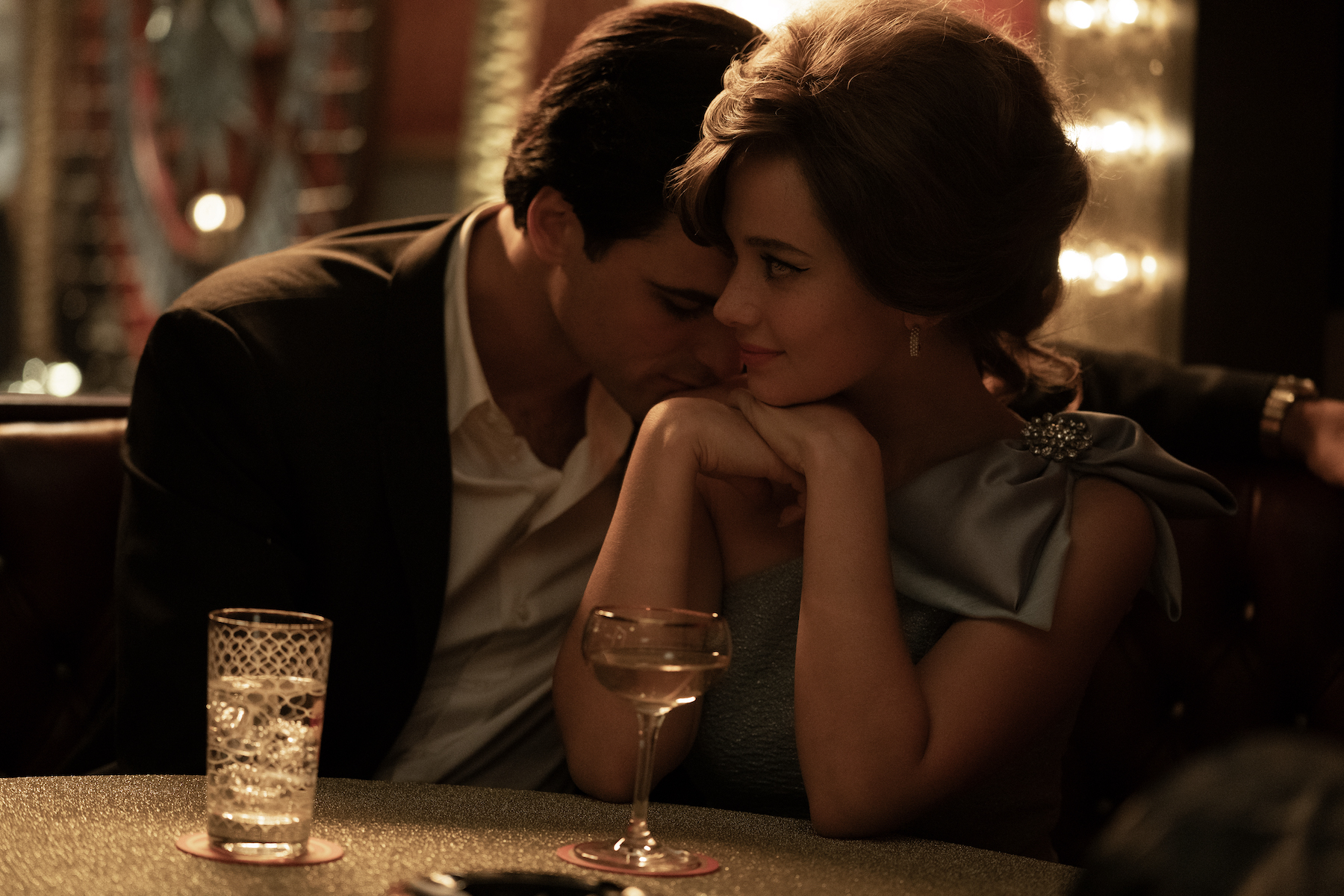
Tracing Priscilla’s journey from wide-eyed teen fan to wife of the most desired man in 1960s America, the film is set between the years of her first encounter with Elvis – they met when she was just 15 and living with her family on an army base in Germany – to when she eventually leaves him in 1979. Never falling into the trite caricatures so many biopics are guilty of, Coppola’s story instead unfolds in a more gestural, woozy manner, laying out evocative scenes of romance, loneliness and abuses of power from behind the gilded doors of Graceland.
The movie was shot over a whirlwind 30 days on a shoestring budget, but despite limited time and resources, Battat describes a warm and creative energy on set. ‘I think I heard Bill Murray describe Sofia like this once: she’s very sweet, very delicate, but she’s made of steel,’ she says. ‘She normally starts with a mood board and it's really a mood board. There are no photos of sets, or of specific costumes, or anything like that. For Priscilla, the mood is multifaceted. There was a photo of them on their wedding day, which is loving, and then there was this [William] Eggleston photo that had this ennui. She lets all the department heads develop from there.’
Remarkably, Battat had almost 90 per cent of the wardrobe – including a staggering 120 costumes for the main characters – specially made for the film. ‘We were making clothes till the very last shoot day,’ she laughs. ‘I have an amazing team – Ahmed, Julian, Yulia and Kat – who really worked so hard and made so many amazing clothes. They were sewing till the last second.’ Battat and Coppola also called upon designers like Chanel and Anna Sui, as well as independent labels like Eòlas, to help create the character’s distinctive looks. Perhaps the most special of these commissions was Priscilla’s lace wedding gown, which was made by Chanel under the close attention of Virginie Viard using photos of the couple on their wedding day.
While one challenge was to show the changing fashions of the 1960s and 70s, Battat was also tasked with Priscilla’s visual transformation from an adolescent to a woman – and indeed, her waking from the teenage dream of Elvis to venture into a reality of her own. ‘I did a lot of research,’ Battat says. ‘Tons. As a lot of this story is set behind closed doors, I also did a lot of research just into the fashion and colours of the era. For our Priscilla, we exclusively used a kind of fuller skirt. As she got older, I took a little volume out of the crinoline. Then we moved into 60s silhouettes, and then from there into the 70s and pants, which I do think helped her find herself.’
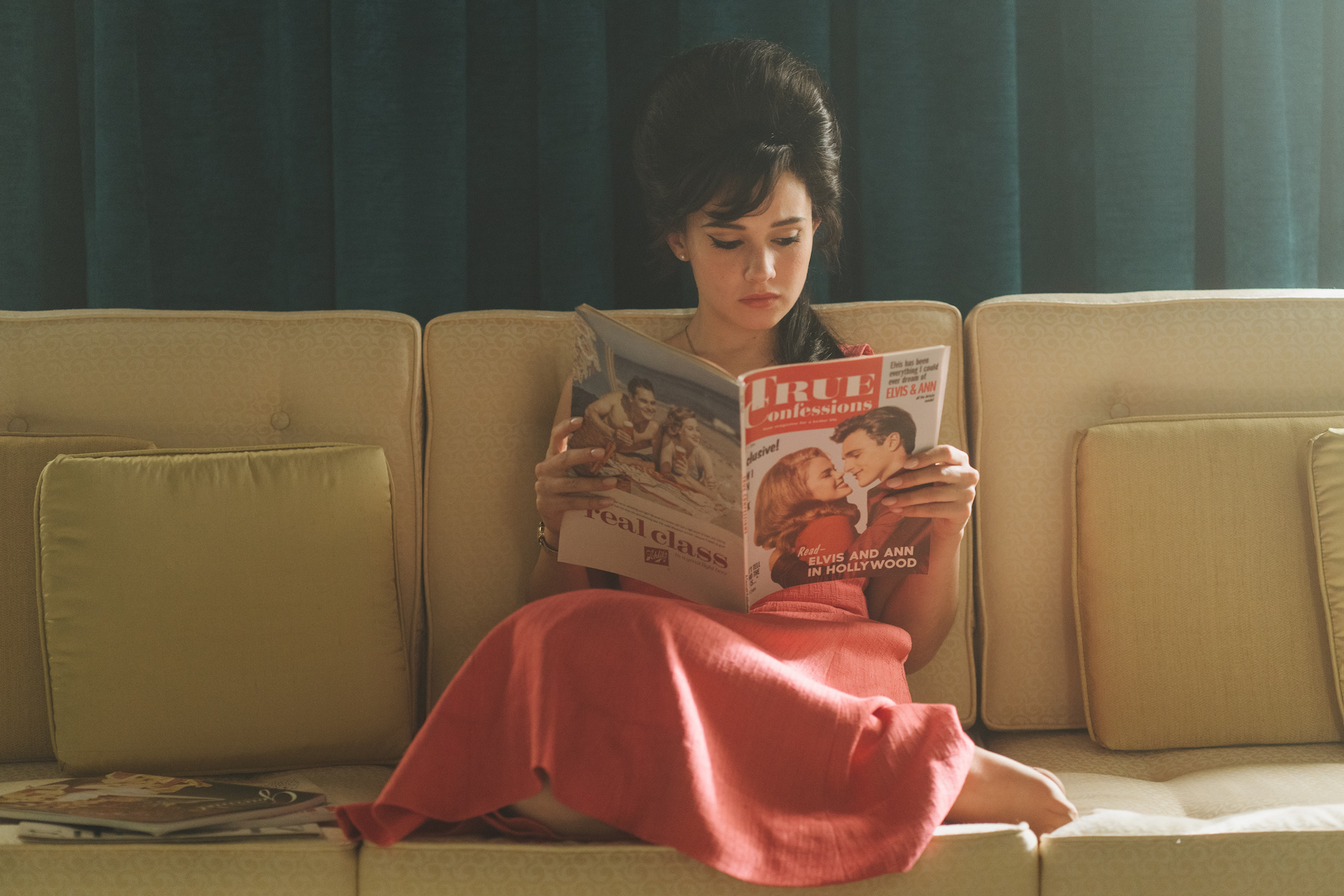
In Coppola’s films, often it’s the visual textures of her scenes, rather than the dialogue, which speak the loudest. Through Priscilla’s heavy champagne carpets and gauche furniture; lavish shopping trips and decadent outfits Elvis decides she should wear – in one scene, laid out on the bed with kitschy matching handguns – it is suggested that in many ways Priscilla is just another of his shiny possessions. ‘When I think about it, I don’t know if he ever saw her,’ says Battat. ‘I think he was like, “This is what I want my ideal woman to be and I will help you to become her”. And she wanted to be that ideal woman.’
Despite this, Battat is aware of the nuanced grey of their story – the good and the bad. ‘I wanted to make sure that [Elvis] was to be somebody that is accessible to Priscilla,’ she says of his wardrobe, which was softer and more domestic than his public persona. ‘I wanted to show his humanity because the reality is, he wasn’t a perfect person. She loved him, he was loving, he was horrible. He was all of these things, which I feel is very human.’
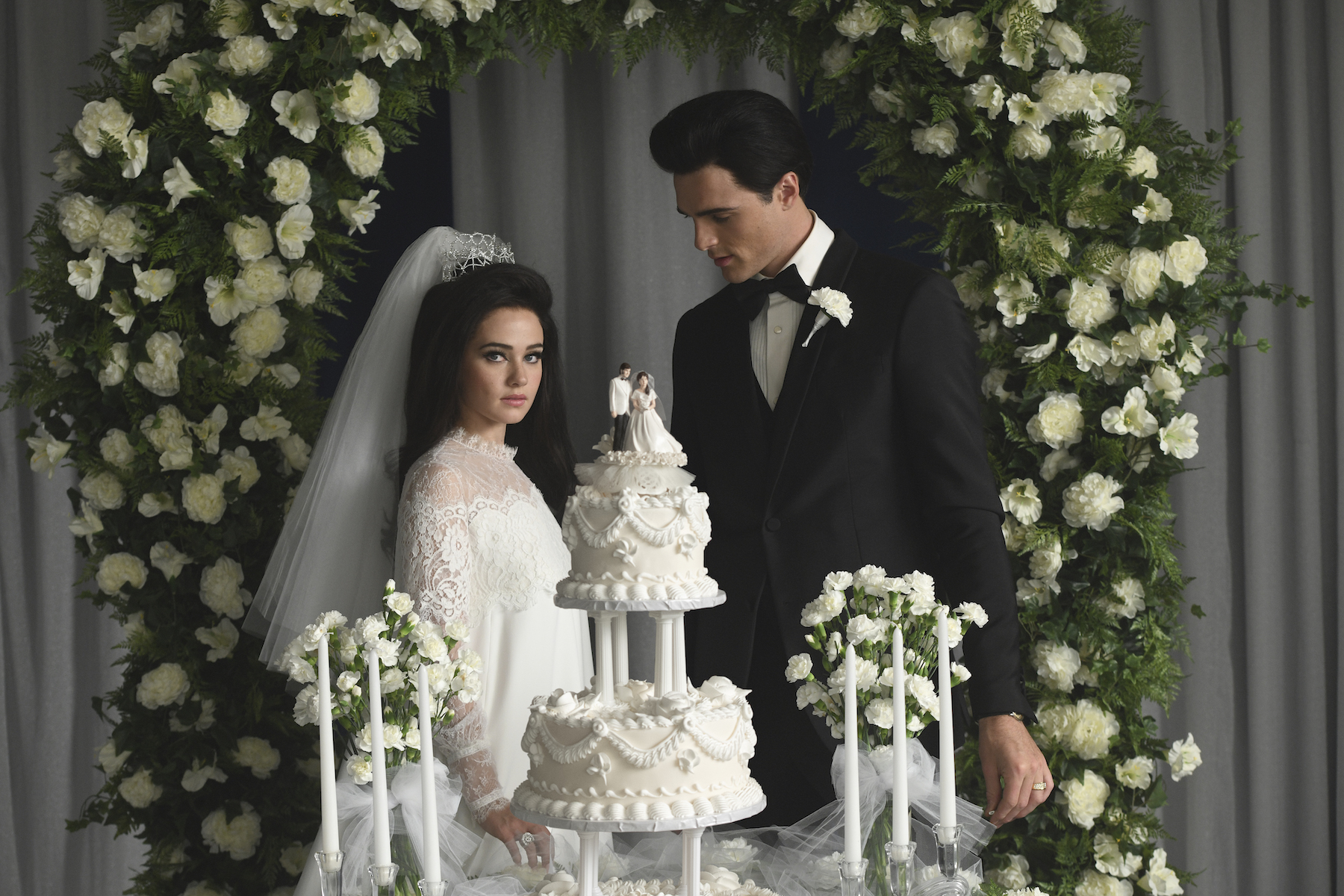
While Coppola’s favourite look in the film was a romantic blue satin dress worn by Spaney in a Vegas casino, for Battat, of all the looks, it’s this softer, human Elvis that she keeps coming back to – in particular, a suave Valentino shawl-collar look Elordi wears on the couple’s first date. ‘He just looks so elegant,’ she says. ‘He looked cosy, like you wanted to hug him or something. I loved that look.’
Like the other dreamlike worlds Coppola and her team are so skilled at creating, beneath the saccharine beauty of it all, Priscilla is really a story about womanhood in extraordinary circumstances. ’I just think it was incredibly brave of her to walk away,’ Battat says. ’I was just really fascinated by that. It was a very different world, she grew up in a time when your biggest aspiration for your daughter was to marry well. I was just really stunned by how brave she was.’
Priscilla (A24 films) opens in UK and Irish cinemas on 1 January 2024, with special 35mm previews from today (26 December 2023).
